Note: This post contains mention of suicide.
Being the eldest sibling can be hard, but being the eldest daughter can be absolutely exasperating. I'm the eldest daughter of four, so trust me, I know. Recently, the BuzzFeed Community shared with me their struggles of being the oldest child, and there were so many stories that hit a little too close to home. But, I wanted to highlight the 'eldest daughter trauma' stories because being considered the 'second mom' is all too real. Here are some stories that candidly showcase the eldest daughter experience:
1. "Even as a 29-year-old woman, I constantly have to be the parent for my immigrant mother and college-aged sister after so many years. When I was 10, my mom told me something that will stick with me for the rest of my life: 'I can't help you and your dad can't help you. You have to figure everything out on your own.' I managed to do so, but I also had to figure everything out for my parents and my sister. Because I was the best English speaker, I payed the bills and made the phone calls, and I was expected to excel in education because I was supposed to be the role model for my siblings and cousins. It is exhausting beyond words; it has affected my education, my job, and my relationships outside of family."
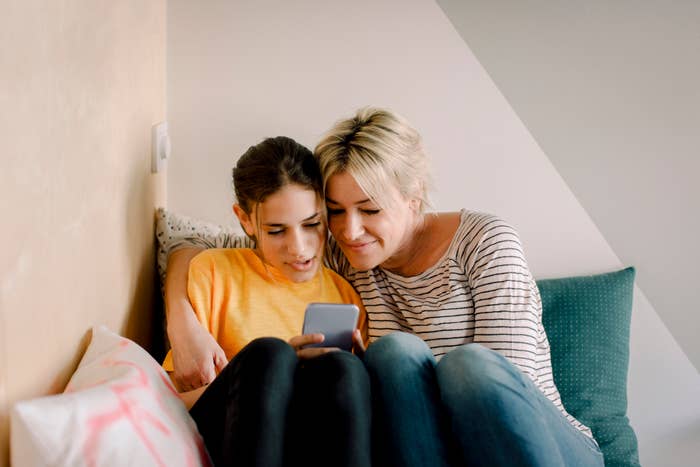
2. "I'm the oldest of three and the only daughter. We grew up in extreme poverty, and I took care of my brothers from the age of 10. My youngest brother still refers to me as his 'second mom,' and he's 35 now. My mother had a horrendous childhood; she had so much trauma that led to bad relationships and hardship, but she truly did the best she could. We went without so much, and I was parentified and responsible for way too much way too soon. I became a parent myself when I was very young, but I was motivated to give my children a better life. Among my siblings, I'm the one who 'made it' — I own a house, have a successful career, and my children will never know the type of poverty and instability I'd experienced. Sadly, my brothers have never been able to break the cycle. They struggle with poverty, addiction, and housing instability to this day, and they only call me when they need money. It's heartbreaking because we used to be so close."
3. "I was an 'oops baby' when my parents were teens in the late '60s. In 1971, when I was almost two, I was kept in another town for three months. My parents were always working, so they could only see me on weekends and on my second birthday. By the time I was four, my brother came along — a planned baby. My parents doted on him. My parents were there for him every day. Maybe five years later, my brother and I got into our own respective sports. I started playing softball, and he took up hockey. Guess who had more parental support? In my parents' eyes, my brother could never do anything wrong. Despite trying my best to have a good relationship with them, I always end up feeling left out. Even when my brother introduces a new girlfriend to the family, she's treated more like a daughter than I am. It hurts."
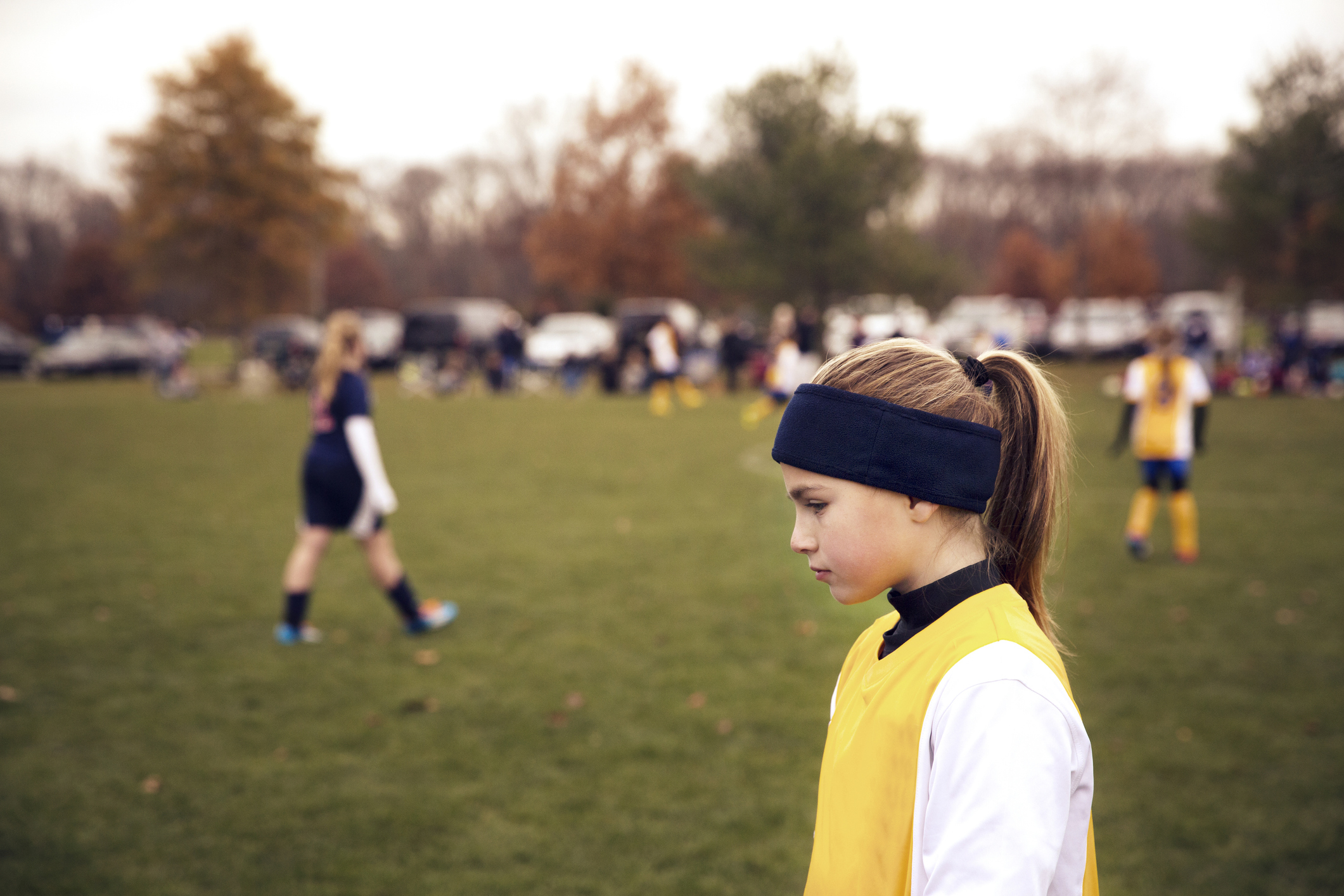
4. "My brother is the oldest, but I'm the oldest daughter. My mother babied him and dumped on me. I was her assistant and punching bag, and it took years for us to heal our relationship. At one point, she admitted that when she found out she was pregnant with me, she seriously contemplated aborting me because she'd just landed a good job, and my arrival would be an inconvenience to the life she was building. I was 14 when she said that to me. Afterward, I was confused why I felt angry toward her. I thought I should've felt grateful that she didn't make that choice, especially since she'd proved to her bosses that she could be successful while pregnant. Now that I'm an adult, I can better understand why she made the choices she did, but that experience has definitely shaped how I'll treat my own daughter if I'm ever blessed to have one."
5. "I'm the eldest daughter of an Asian family. My mother had me at the young age of 20. I was expected to take care of my little brothers, who were nine and 13 years younger than me, and step into a motherly role. I fed them, bathed them, attended parent nights at school, took them to their doctor visits, and drove them to and from their activities. To this day, as adults, my brothers still come to me for most things or when they need my help. Because of all the responsibilities that were placed on me at such a young age, I pretty much didn't want kids. I ended up not getting married and settling down until I was 36. My husband convinced me to try for a family of our own, but it was too late for me. After multiple infertility treatment attempts, I unfortunately am unable to bear children. I don't have any regrets or animosity, but I wish the early pressures, expectations, and stress didn't begin so young."
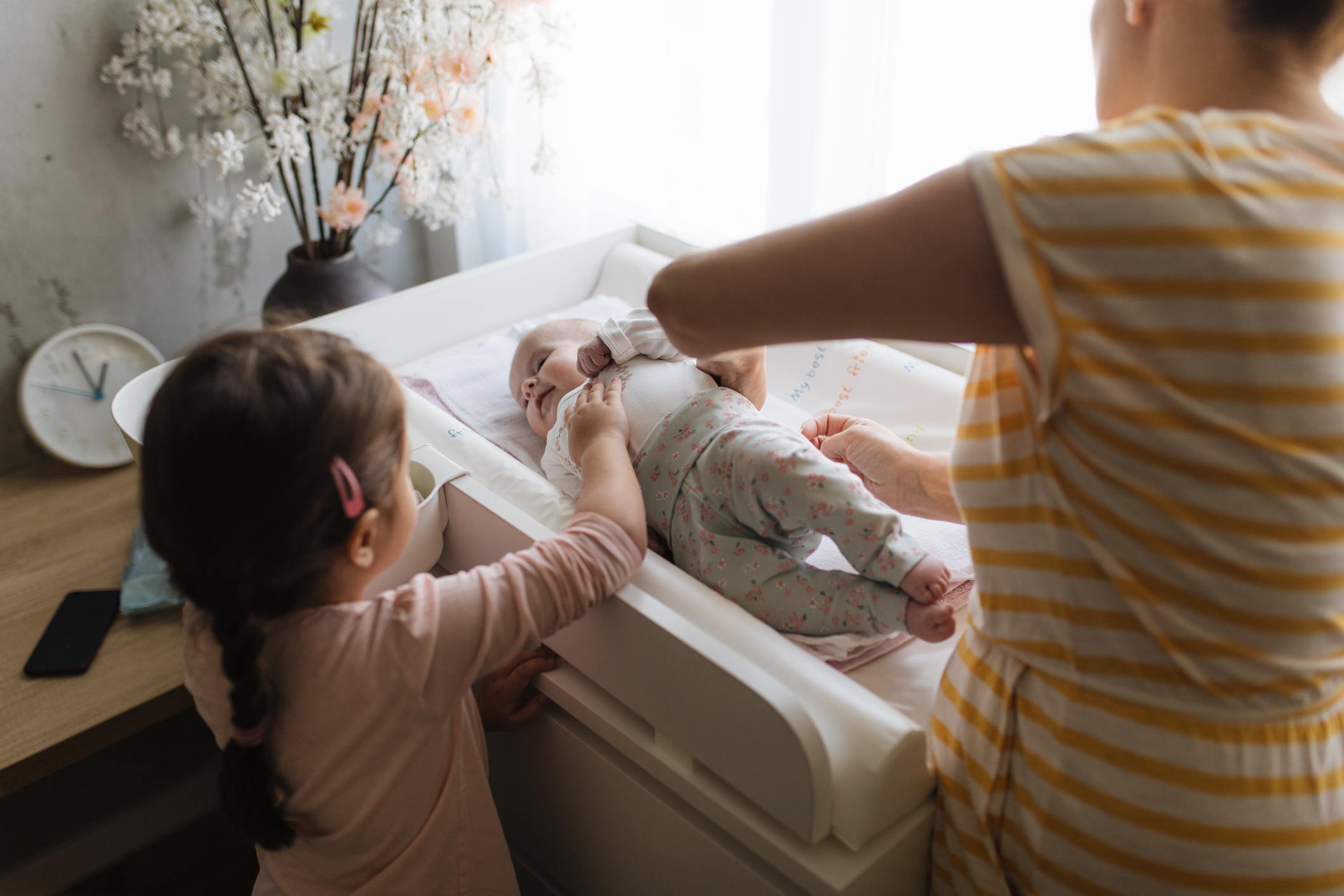
6. "I'm the oldest of three and the only daughter. I love my parents, but my brothers were clearly favored. I was the guinea pig — nothing below a B- was acceptable, curfew was 9 p.m. regardless of age, and there were to be no unchaperoned dates until 16. Meanwhile, my brothers got C's, one had a pregnancy scare, and the other was arrested. I was lucky I had friends with older siblings who'd drive me to my sports games and practices. My parents split their time between my two brothers, while I had other parents cheering me on."
—Anonymous
7. "My two younger siblings and I are all four years apart from each other. I got the standard 'oldest-sister-to-caregiver pipeline' baggage, in addition to experiencing the bizarre shift in parenting style that occurs once you're no longer the only child. But the shift in religious upbringing is what I'm struggling the most to forgive. I got the brunt of the 'hyper-evangelical baggage' — the fervor, the church youth camps, the bible study, the need to 'win' souls, the constant talk about hell and sexual sin, and so on. My middle sibling (who is now 16) was required to go to church, but when they found it boring and annoying, my parents didn't mind. Meanwhile, all my youngest sibling remembers is going to Sunday school to color and have fun."
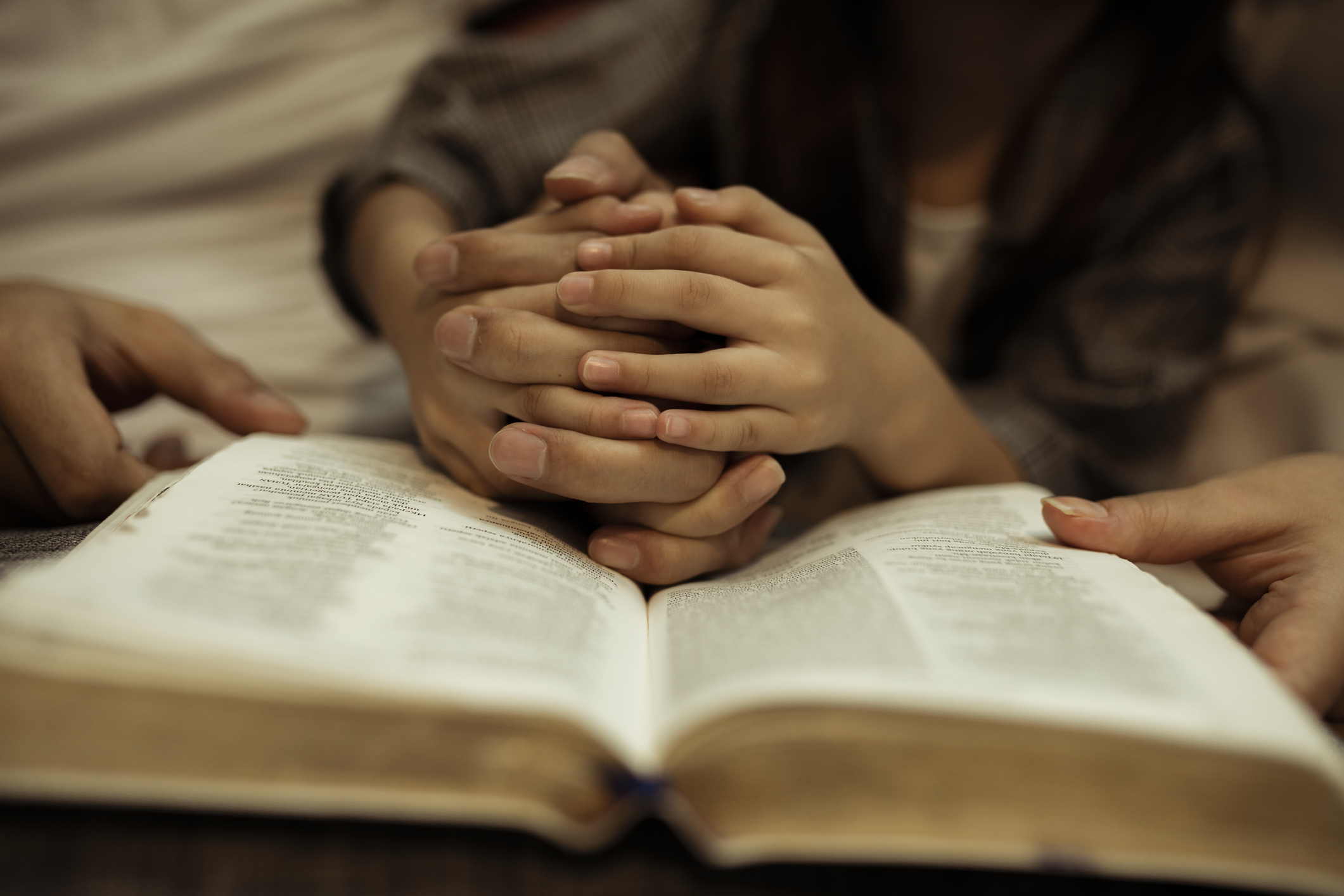
8. "As a lower-class first-generation immigrant, having to navigate adult responsibilities as a 7-year-old in a new country was traumatizing. I remember paying hundreds of dollars worth of bills over the phone since I was the only English-speaking family member, buying plane tickets, and handling important documents. To this day, even doing the simplest grown-up responsibilities will cause me to freeze up with anxiety, which leads to a lot of consequences."
—Claudia, 30, Missouri
9. "As the oldest of four, I was definitely parentified at a young age. My mom had a part-time job cleaning at our grade school, but for the most part was a stay-at-home mom. Most weekends, I babysat and took care of my siblings. When I was 16, my parents divorced, so it got even worse. My mom decided to go back to school, and left me to take care of the house and the kids. Meanwhile, I was still trying to be a kid myself. I finally moved out when I was 19, but to this day, I'm the only one who helps her. As my mother's health declines, no one has stepped up but me. I always have to be the responsible one in my family, my friendships, and even at my job. I was so tired of being the person everyone leaned on. I finally started saying 'no' and learned how to set up boundaries to protect my peace, even if it meant being alone."
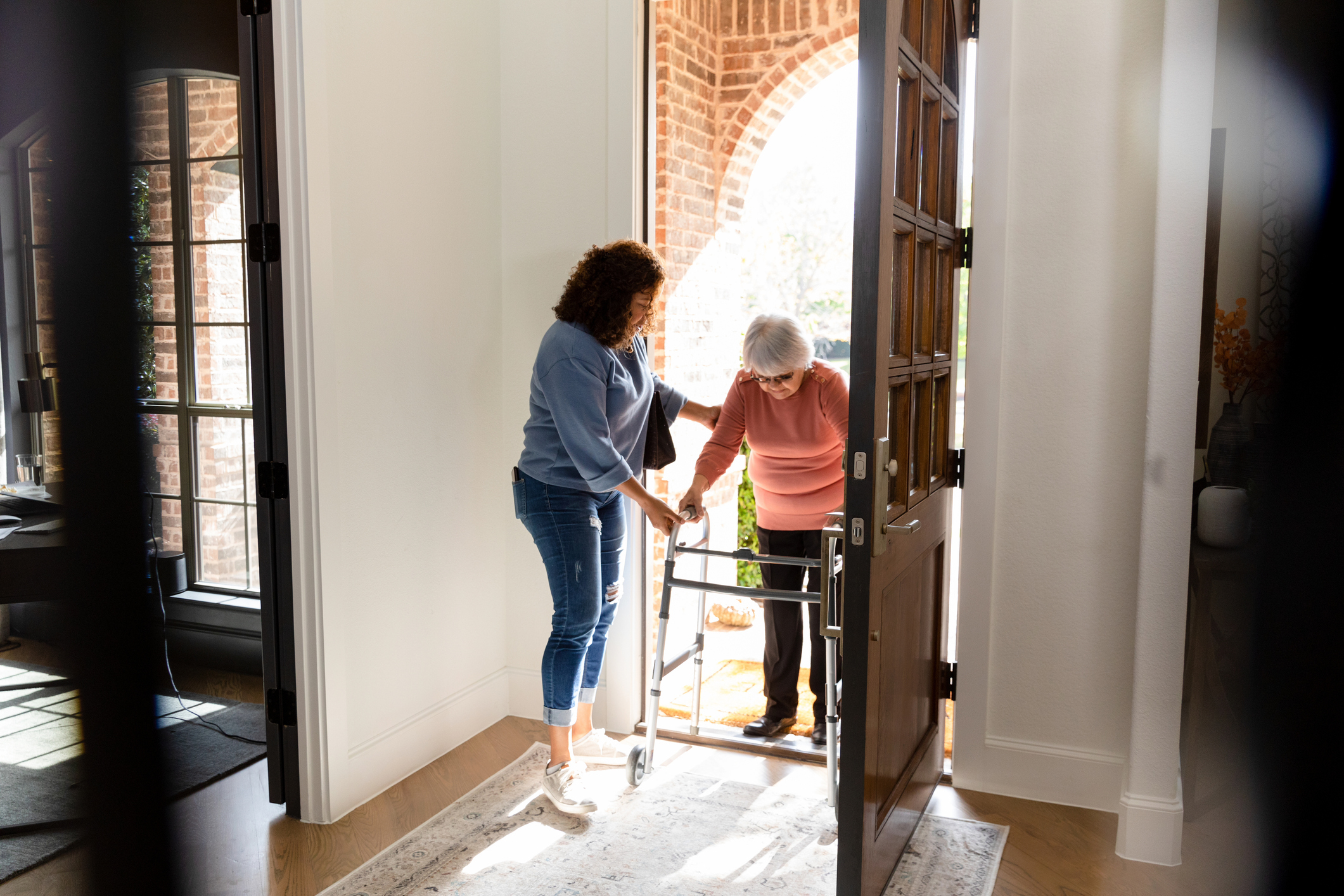
10. "I'm the oldest and only girl, and growing up, my dad was never home. He'd said so himself that he was gone most of my life, so I had to take care of my little brother since I was three. I'm neurodivergent and mentally ill, so alongside having to watch over my brother, I also had to simultaneously deal with my own issues. It was really rough growing up, and I never got any credit for basically raising my brother."
11. "My sister is 17 months younger than me while my brother is four years younger than me. I was seven when my parents got a divorce, and that's when I also became the third parent. I was in charge of calling Dad and arranging visits, delivering child support checks, taking care of the house, and keeping my siblings safe. Things were good for a while after my mom got remarried, but then she got another divorce. She ended up having to work two or three jobs at a time, and what made things worse was her OCD. On top of caring for my siblings, I was also doing everything I could to help my mom. My mom, who washed her hands repeatedly, who wouldn't touch a doorknob without a napkin, who showered a dozen times a day. Then, she married a man who gambled and was addicted to alcohol. That brought the suicidal thoughts out of me."
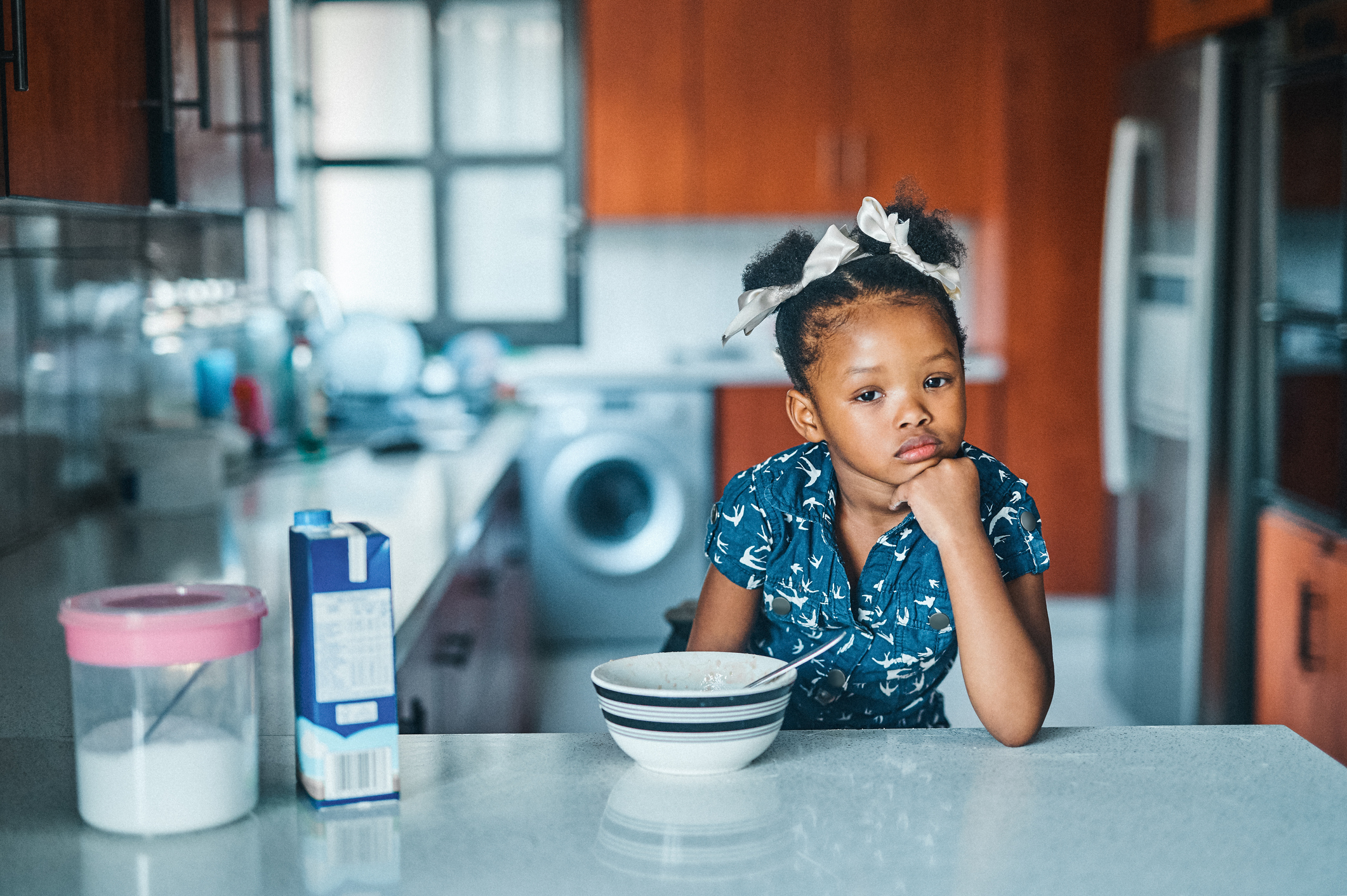
12. "I'm the second oldest but the eldest daughter. My brother, the only boy, was treated like a prince. He got whatever he wanted, and even though he's the oldest, he never had to help take care of our younger siblings. I had to be a 'little mother' at a very young age — I changed diapers, cleaned up, got the younger ones ready for school, and more. To this day, my brother is still considered the 'golden child,' but he's really just useless. I still have to worry about whether or not everyone is okay, fed, and happy; meanwhile, he's never had to concern himself with any of it."
13. "I'm the eldest of four girls. My mom was sweet and loving, but when I turned eight, she began to have mood swings and became unpredictable. My dad was emotionally distant, so I wasn't comfortable, nor thought it was my place, asking about my mom. My parents were so strict with me that I was afraid to argue or disagree with them, because I'd been told that I wasn't allowed to talk back. They said that since I was the oldest, I had to set an example for my sisters. That had a lasting impact on me. Well, one of my sisters was not afraid to argue with our dad. I would ask her, 'You aren't afraid?' and she'd say, 'Why would I be? It's just Dad.' To this day, I look for other's approval, don't always trust my own judgement, and I question whether my feelings are valid. I am working on these issues, but it's definitely been a struggle."
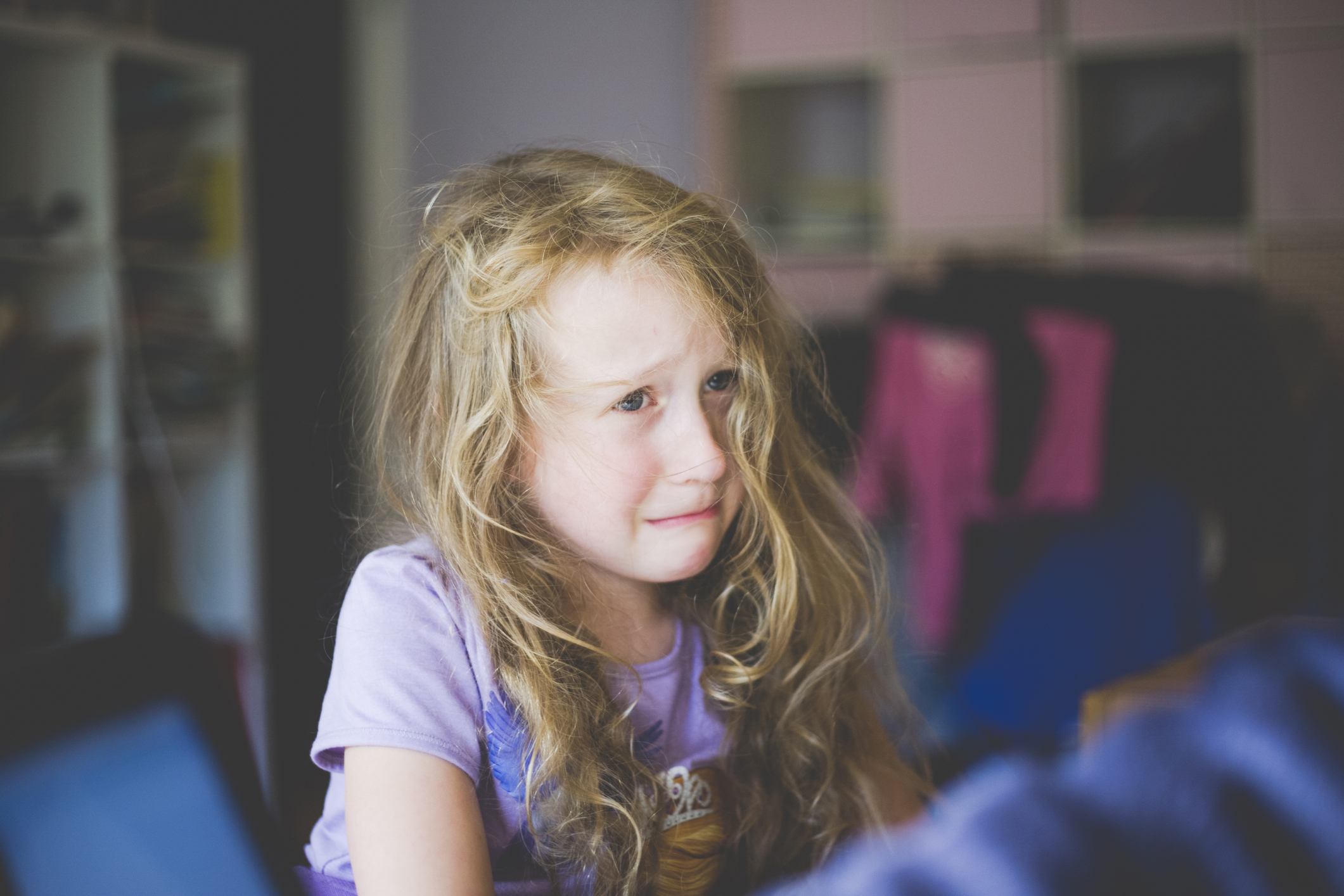
14. "I'm the oldest of six. Because I'm a girl, I was expected to change diapers, bathe, and feed all the others. I wasn't allowed to play with friends, join sports, or partake in after-school activities since I had chores and responsibilities at home. My mom had me young, so she was trying to finish her degree and get a job. Because of that, I had to do all the housework, too, like making dinner, doing the dishes, and doing the laundry. Before I went to school, I'd wake up at five in the morning to try and get some housework done. I don't even know how I had time to do my own homework. As my mom's finances improved, my younger siblings were able to experience things I wasn't able to: swimming lessons, camp, school sports, etc. To this day, I still don't know how to swim (but I plan to take lessons). Now, my time is my own. Even so, I still get triggered when someone tells me to do a household task."
—Anonymous
15. "I'm the oldest of three, with my youngest brother being a little over five years younger than me. We can be pretty tight-knit sometimes, but like most eldest siblings, I am expected to set a good example, despite my anxiety issues and declining social skills. I love my parents; they understand all my issues and try their best to help me, but one thing they can never understand is that my siblings will always have it easier in life because of me. If something goes awry with me, they know not to do the same on the next child. And though I can't hit my siblings (not that I'd want to), they're allowed to hurt me."
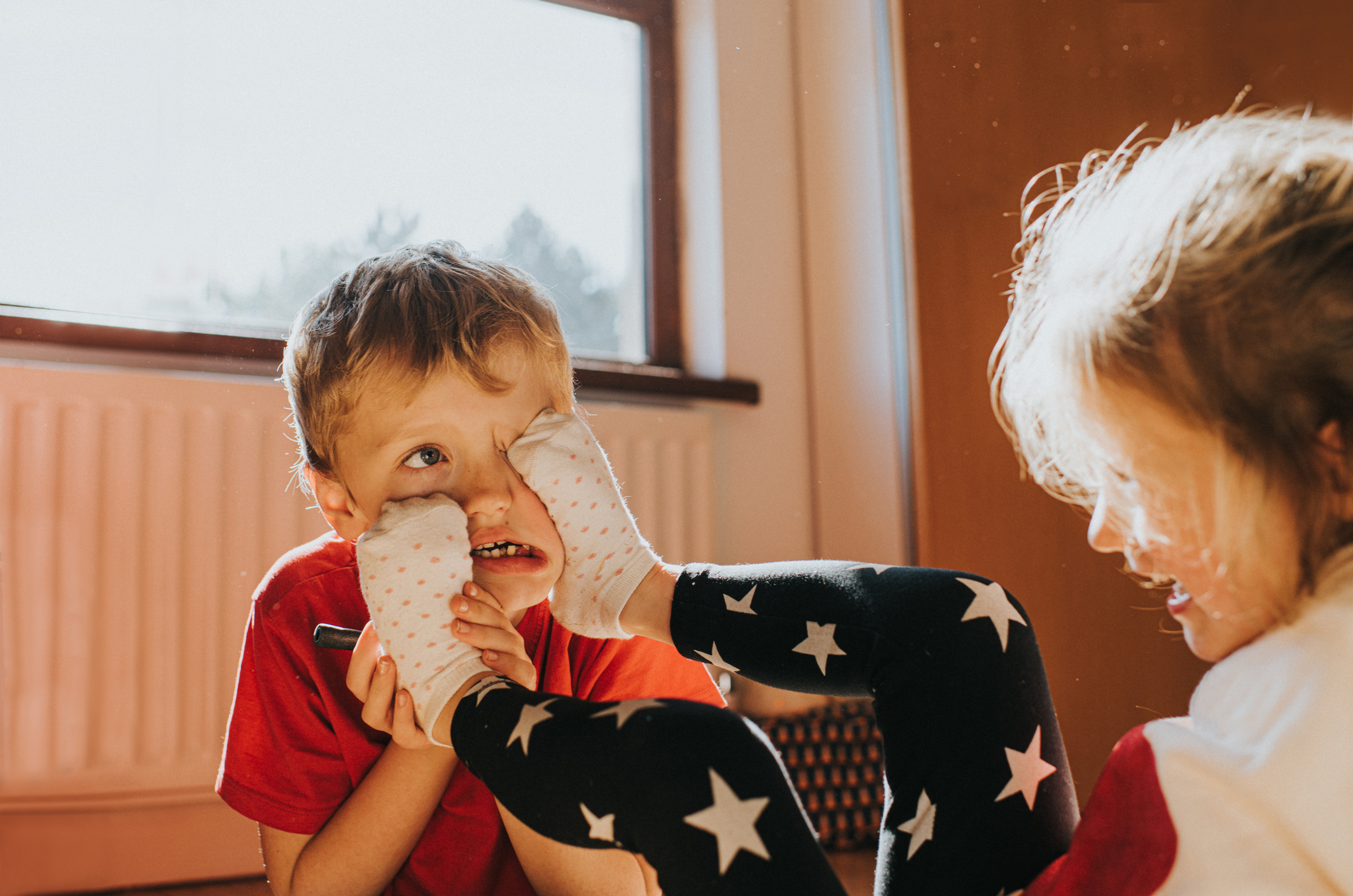
16. "When I turned 16, my parents divorced. My mom got very ill and was close to death. While she did her best, I'd often help with taking care of my younger brother (he was 10 at the time), in addition to trying to keep up with school and my own life. This caused me to lose a lot of my friends because I wasn't able to attend the parties and events everyone else went to. I feel like I was never given the chance to process the stress of my parents' divorce and my mom's illness because I was so caught up in worrying about my brother. Anytime I brought up my feelings, I was told, 'Think about how your brother feels. This is really hard on him.' When I was 21, my mom remarried and had another child. It was at this time that I decided to move out because I was worried I was going to have to end up taking care of yet another sibling."
—Anonymous
17. Lastly: "When I was a little girl, my family took a very strict approach to child-rearing. I was always trying to be very polite and respectful; my parents were certain of that. But when I was 10, my little sister was born. My parents read a book on parenting and decided to take a more 'free-range' type of parenting style, that ultimately didn't go well. My little sister never learned to have respect or empathy for others. She'd always see what I had and break or steal it, just because she could. When we were younger, this meant stealing and ripping up pages of my diary. As adults, this means her sleeping with my fiancé. It sucks."
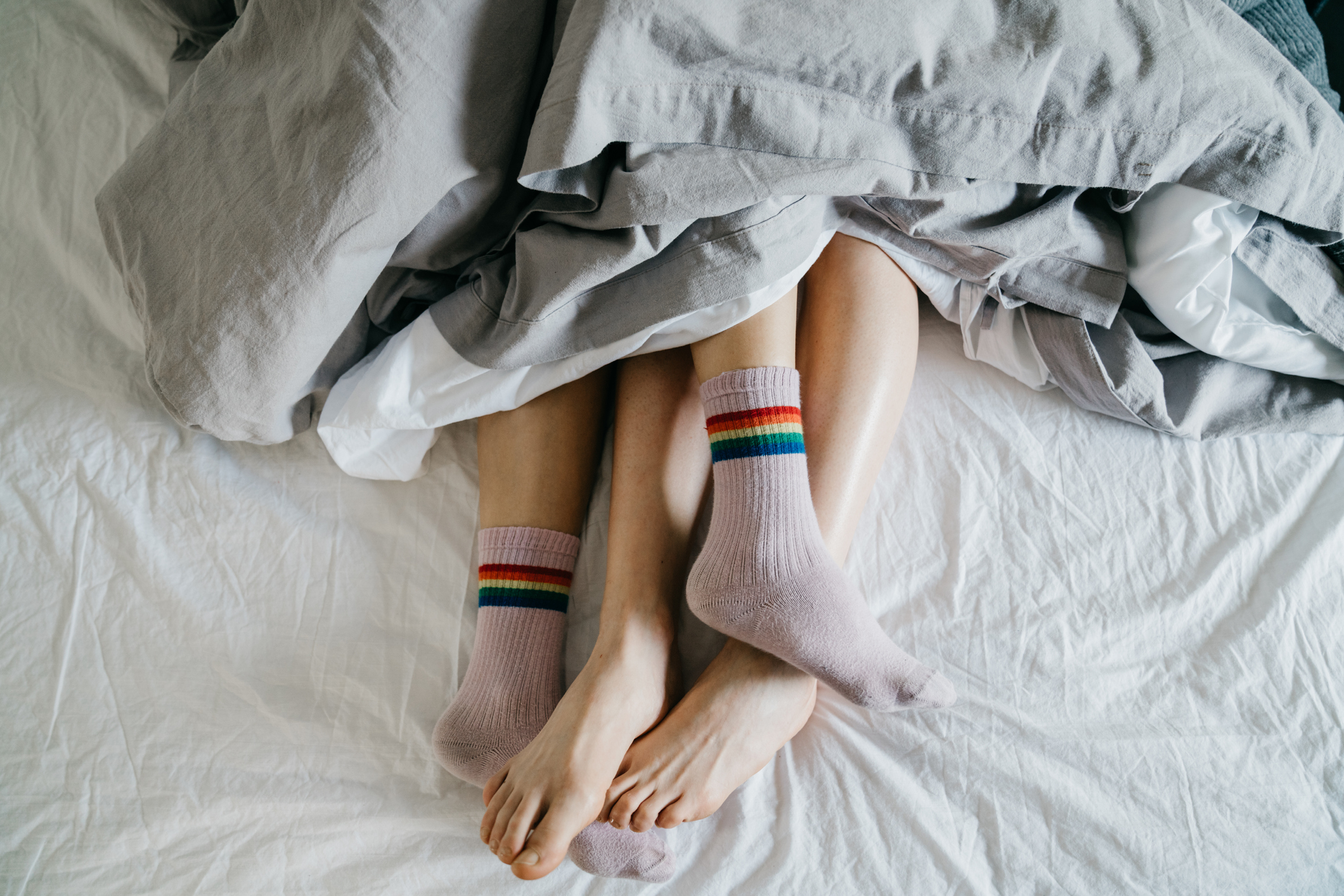
To my fellow eldest daughters: you deserve to be taken care of, too. Do you want to share your experience growing up as the eldest sibling? Share your story in the comments, or you can submit anonymously using this form.
Note: Some submissions have been edited for length and/or clarity.
The National Suicide Prevention Lifeline is 1-800-273-8255. Other international suicide helplines can be found at befrienders.org. The Trevor Project, which provides help and suicide-prevention resources for LGBTQ youth, is 1-866-488-7386.
